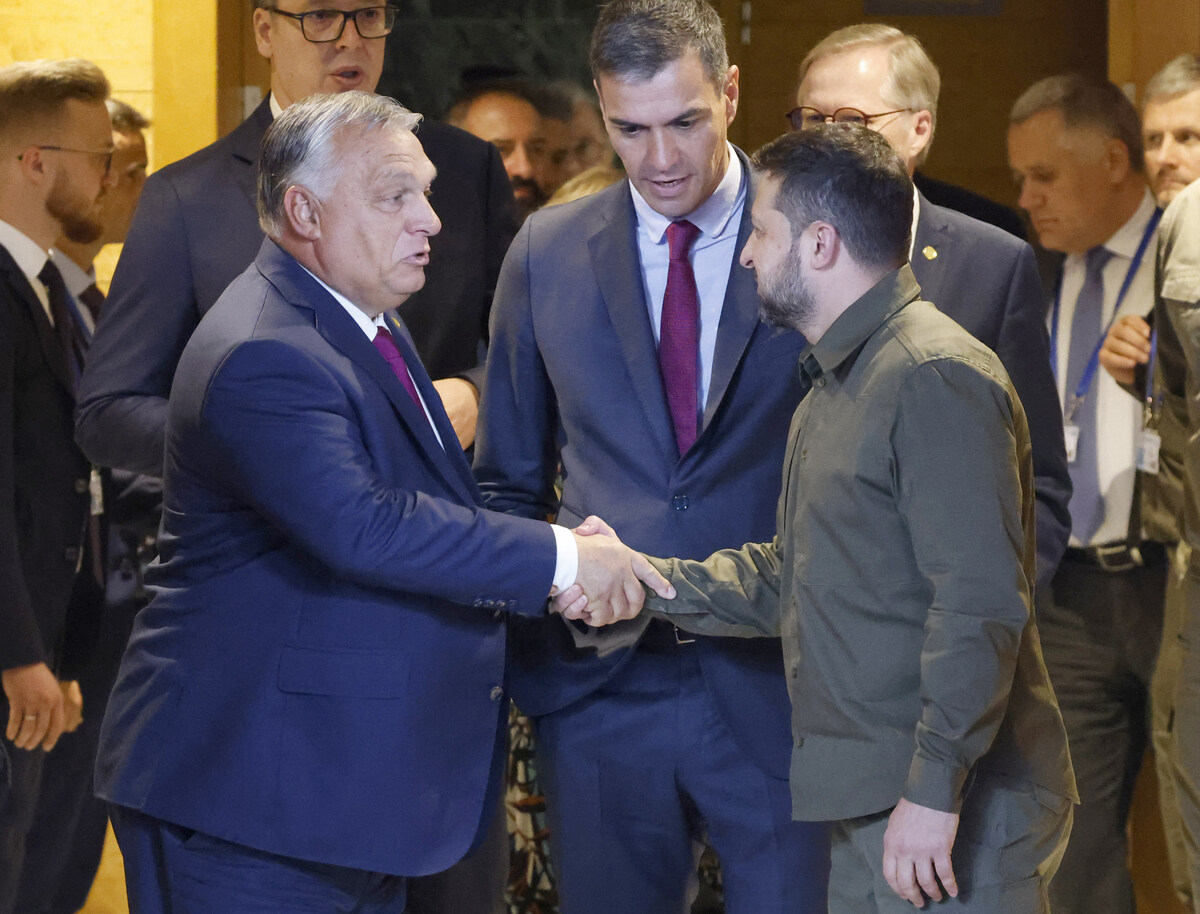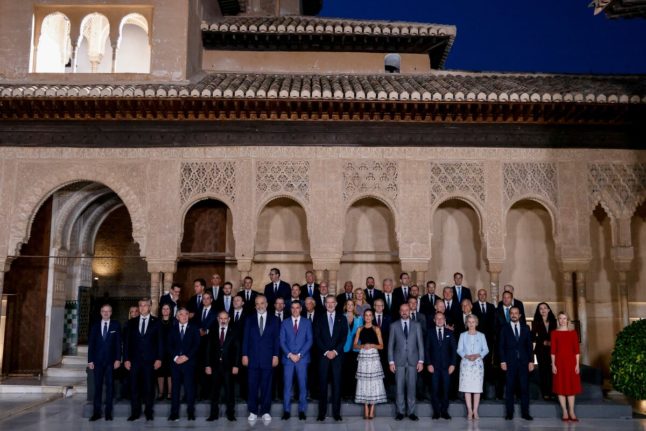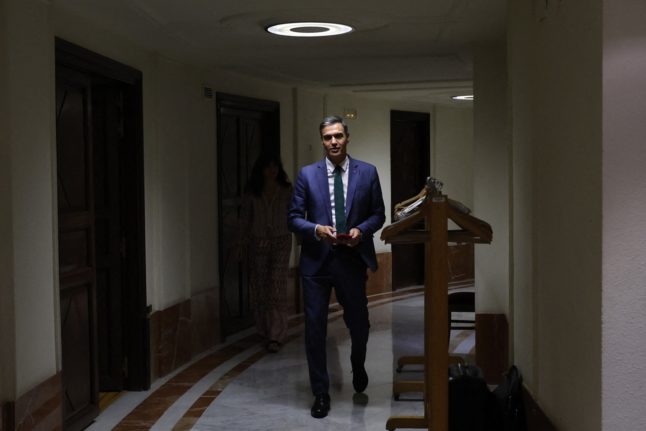After a tense day of talks at Thursday’s European Political Community summit, EU leaders began an informal council meeting in the southern city of Granada, with migration topping the agenda.
Poland’s populist government, facing a general election next week, lashed out at Europe’s plans for overhauling the rules on asylum seekers and irregular migrants as a “diktat” from Brussels and Berlin.
There was also a furious response from Hungary, whose Prime Minister Viktor Orban said the law, which obliges states to take in a share of migrants or pay those who do so, was tantamount to being “legally raped”.
“Poland and Hungary were not satisfied with the proposal… so after this, there’s no chance of having any kind of compromise and agreement on migration. Politically, it’s impossible… because legally we were — how to say it — we were raped,” he said.
One of the most-hotly disputed issues among EU member states, migration tops Brussels’ agenda after thousands of asylum-seekers landed on the Italian island of Lampedusa, highlighting the urgency of consolidating a unified European response.
The Spanish hosts failed to put the crisis on the agenda of Thursday’s European Political Community summit, which groups the EU with their European neighbours.

But Italy and Britain’s leaders staged a side-meeting, backed by France and the Netherlands, to push a plan to prevent boats carrying asylum seekers even setting off for Europe.
Earlier this week, member states agreed by majority the final part an overhaul of the rules on handling asylum seekers and irregular migrants, setting up push for the European Parliament to make it law before elections next year.
🔴EN DIRECTO
Los líderes de la Comunidad Política Europea visitan los Palacios Nazaríes de la Alhambra, en Granada.
https://t.co/D7ZilW5eAC— La Moncloa (@desdelamoncloa) October 5, 2023
The new Pact on Migration and Asylum would seek to relieve pressure on so-called frontline countries such as Italy and Greece by relocating some arrivals to other EU states, while those opposed to hosting asylum-seekers would be required to pay those that do.
Italian Prime Minister Georgia Meloni said she was “satisfied” with the direction Europe was heading.
Insieme, il Regno Unito e l'Italia stanno ricercando soluzioni strutturate e di lungo periodo alle maggiori sfide globali con cui ci confrontiamo. È per questo che al Vertice di ieri ci siamo concentrati sulla migrazione illegale ed è per questo che siamo determinati a fare tutto… pic.twitter.com/iPkXRRPq9r
— Giorgia Meloni (@GiorgiaMeloni) October 6, 2023
“Europe’s ambitions in terms of migration are becoming more pragmatic in terms of legality with a desire to combat human traffickers, and to stop illegal immigration,” she said on arriving at the EPC summit on Thursday.
A key part of the pact is an obligatory mechanism to help member states faced with a sudden influx of asylum seekers, like in 2015-2016 when hundreds of thousands arrived, mostly from Syria.
Both Poland and Hungary have repeatedly fought against the pact and have relentlessly pushed, in vain, for the final declaration of the Granada summit to include a reference for the need for unanimity over the migration reform, diplomatic sources said.
Disagreement over the pact could block a joint declaration on migration as happened at a Brussels summit in early July.
But the text being discussed for Friday’s summit includes stronger language.
According to a draft seen by AFP, it says illegal immigration must be “immediately addressed in a determined manner” and refers to “stepping up returns” of migrants.
It also affirms the EU’s determination to forge “mutually beneficial comprehensive partnerships with countries of origin and transit”, such as the one signed in July with Tunisia to reduce the number of migrants arriving from there.
The migration pact must now be put to the European Parliament for further debate in the hope it will be in place before the upcoming elections, which could see a significant shift in the assembly’s makeup given the rise of right-wing parties in several EU nations.



 Please whitelist us to continue reading.
Please whitelist us to continue reading.
Member comments